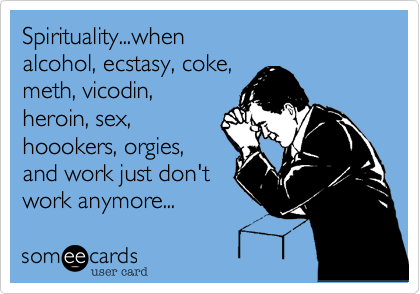Tony Bryer is Edinburgh's City Centre Workplace Chaplain employed by our 3 churches working in ecumenical partnership. He reflects here on the relationship between the life of work and our spiritual health in an article originally published in Cornerstone Magazine in June 2015.
I recently came across the following statement: ‘It was requested that a corporate spirituality policy be prepared covering employees of the organisation......this report proposes the approval of an employment policy on faith, religion, belief and non-belief (spirituality)’.
From time to time, opportunities to talk about faith, faiths and spirituality arise in workplace chaplaincy. It may be a member of another world faith, interested to know something about Christian practice; it might be a practising Christian wanting to talk through an issue concerning the relationship between his or her faith and something at work; or it may be someone (of no faith) who is wrestling with a decision about the direction of his or her life, and the values that could shape the choices.
Such conversations are about faith, religion and spirituality – but they are not the sort of conversations we often have in church settings. It seems to me that here there are some challenges for us as the Together churches.
Do those of us in regular employment find that we are able to make the link between our faith and our work, in a creative and liberating way? Or are they kept in separate boxes? I wonder whether this is something we should try to address jointly. Exploring the idea of how the Kingdom (or Rule) of God relates to the world of business, commerce and service industries is surely an important task for churches who believe that God is present in all of life.
Some organisations do speak of the spiritual care of their employees. Again, what might such care look like? I am presently involved in one workplace with regular sessions set up to explore precisely this issue – through reflection, silence, guided meditation and sharing. Perhaps we too should be looking at what a spirituality of work (and spirituality at work) might look like.
If any of this interests you, please contact me. If you want to think more about the idea of God’s kingdom and work, I can send you copies of a bulletin that is dedicated to the practical and theological exploration of the idea.
From time to time, opportunities to talk about faith, faiths and spirituality arise in workplace chaplaincy. It may be a member of another world faith, interested to know something about Christian practice; it might be a practising Christian wanting to talk through an issue concerning the relationship between his or her faith and something at work; or it may be someone (of no faith) who is wrestling with a decision about the direction of his or her life, and the values that could shape the choices.
Such conversations are about faith, religion and spirituality – but they are not the sort of conversations we often have in church settings. It seems to me that here there are some challenges for us as the Together churches.
Do those of us in regular employment find that we are able to make the link between our faith and our work, in a creative and liberating way? Or are they kept in separate boxes? I wonder whether this is something we should try to address jointly. Exploring the idea of how the Kingdom (or Rule) of God relates to the world of business, commerce and service industries is surely an important task for churches who believe that God is present in all of life.
Some organisations do speak of the spiritual care of their employees. Again, what might such care look like? I am presently involved in one workplace with regular sessions set up to explore precisely this issue – through reflection, silence, guided meditation and sharing. Perhaps we too should be looking at what a spirituality of work (and spirituality at work) might look like.
If any of this interests you, please contact me. If you want to think more about the idea of God’s kingdom and work, I can send you copies of a bulletin that is dedicated to the practical and theological exploration of the idea.

